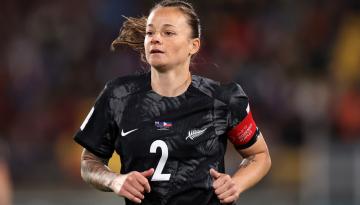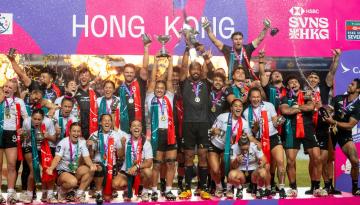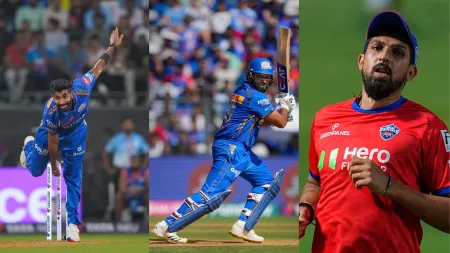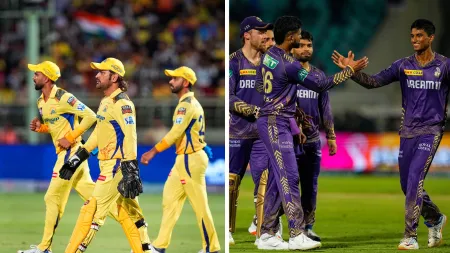Carlo Ancelotti: Managerial shape-shifting genius spanning eras from Ariggo Sacchi to Pep Guardiola, who has won everything in club football multiple times
There is an anecdote that captures the soul of Carlo Ancelotti’s managerial style. His AC Milan squad was so richly gifted with midfielders that he once called Andrea Pirlo, Clarence Seedorf, Kaká and Rui Costa to a corner of the ground, talked personally to each, and told them collectively: “You have to work it out. Or one of you will be on the bench every game.”
This was the genesis of the sumptuous midfield quartet that collected two Champions Leagues titles in four years and lost another in the most dramatic of finals. When fit, none sat out and they became a formidably creative group in one of the greatest teams ever.

Some could argue that Ancelotti gave so much autonomy to his players that he almost pampered them. There is another often cited incident wherein, during a Champions League semifinal between his Real Madrid and Pep Guardiola’s Bayern Munich, he was spotted asking Toni Kroos and Marcelo on the bench as to which substitutes he should bring on.
He once explained his reasoning in an interview with The Guardian: “A coach has to be close to players, understand them. You have an idea of the game, but they’re the ones playing. If the relationship is good, they will understand clearly; if it’s not good, that becomes harder.”
This simple philosophy, of the player as the centre of the footballing universe, individual sparks bigger than systems and structures, has brought resounding success. Ancelotti is the only manager who has won titles in all of Europe’s top five leagues; no one has held the massive ears of the Champions League trophy as often as he has either. The 64-year-old, monikered The Don, is the link between the eras of Arrigo Sacchi and Pep Guadiola, two football radicals who redefined the game; he has played in the Johan Cruyff era, played against Diego Maradona, managed teams against Lionel Messi, managed Zinedine Zidane and Cristiano Ronaldo.
Ancelotti — son of a cheese farmer from Reggiolo in northern Italy, famous for its parmesan cheese — wears no pretence of a visionary coach, like Sacchi, under whom he played in the great Milan team of the late 1980s, or his antithesis Guardiola, always in an endeavour to impart the game with something truly immortal. Yet, he has not only survived eras and ethos — Mikel Arteta and Edin Terzić, fellow managers in the Champions League last eight, were not even born when he began his career — thrived, retooled and redefined himself.
Tempting it is to call him a pragmatist and unsentimental, but at the core, he remains a football romantic. He decided to be Sacchi’s deputy in the Italy team for the 1994 World Cup because he missed turning up for training with teammates after he retired. “The fact that I couldn’t go to training every day was a nightmare for me,” he had said. It’s still his fuel—after spending 16 years as an any-role midfielder as well as a second striker, and 29 as a coach at the world’s biggest clubs. “I will never beat his achievements in the Champions League,” Guardiola said a few years ago, though he managed to beat him twice in six meetings, the last one coming in last season’s semifinal when Manchester City got the better of Real Madrid. Some of Ancelotti’s wins were counter-attacking masterclasses.
Man for all reasons
His pragmatism is not to be misconstrued as cynical football. Rather, he is a shape-shifting genius, one who is not wedded to a system but adept at adapting to various systems and harnessing the best out of them. The Italian is a club president’s dream, because he wins trophies. When he rejoined Real Madrid, the president wanted them to play 4-3-3, and so he did, seamlessly.
Guardiola, a player he tried to buy in his Parma days, is the idealist. The encounter between them is multilayered, yet another duel of debates that will preoccupy the mind of football fans and philosophers until the great fire devours the world. Pragmatism or idealism? System or spark? Real Madrid, as they always do, have a constellation of stars. But to suggest that winning with stars is an easy task can’t be further from the truth. They still have to be moulded into a coherent group. Ancelotti brings coherence, his players swear. Pirlo once thanked him for converting him from an excellent attacking midfielder to a high-class deep-lying midfielder. He installed Kaka at the tip of the most dynamic midfield diamond of this century. The Brazilian would win the Ballon D’or.
In his first stint with Madrid, he was called the Peacemaker because he repaired the team’s frayed spirit shattered by his predecessor Mourinho. In his second coming — Madrid chose him out of default than desire or design — he has rebuilt his frontline around the dynamic Vinícius Júnior and Rodrygo, handed over the keys of the defence to Éder Militão (24) with the midfield manned by the exceptional Jude Bellingham.
It’s a vastly different team to what Guardiola had consigned to a 4-0 hammering at the Etihad. Ancelotti would be the last one to call this a grudge match —“I have been in football since 1977. So I don’t have the time or the desire to fight,” he said last year.
He exudes cool too. Over the years, Guardiola’s touchline intemperance has mellowed but one could see the seething fire in his eyes. Ancelotti has always been a contrast — surreally composed, his hands always inside the designer trousers, the gaze cold and piercing, and the emphatic gait of someone who has won everything yet is not soaked in ego.
Disclaimer: The copyright of this article belongs to the original author. Reposting this article is solely for the purpose of information dissemination and does not constitute any investment advice. If there is any infringement, please contact us immediately. We will make corrections or deletions as necessary. Thank you.





